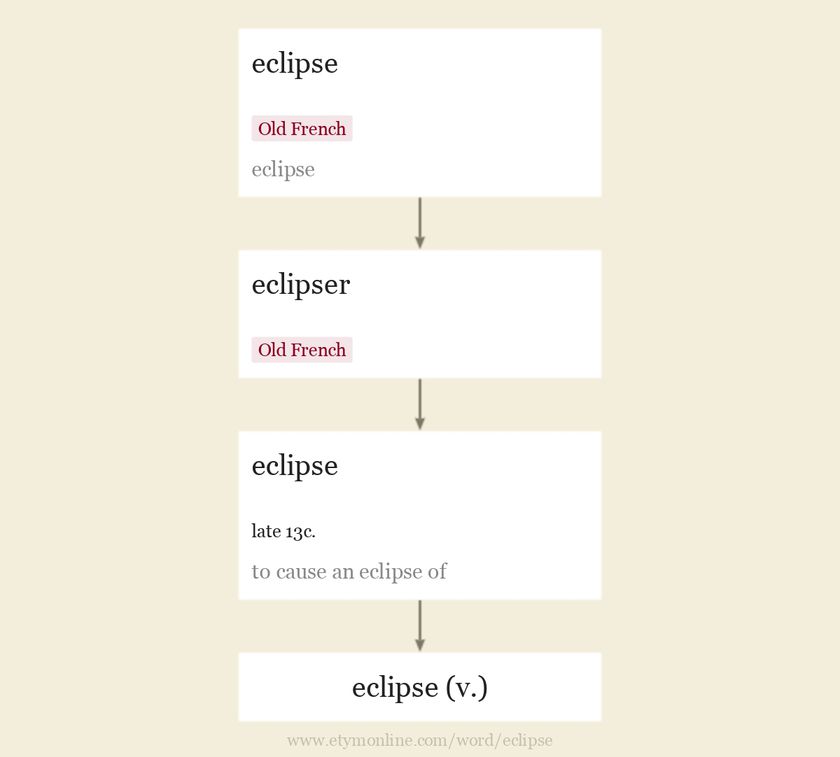Advertisement
eclipse (n.)
"interception or obscuration of the light of the sun, moon, or other heavenly body by the intervention of another heavenly body," c. 1300, from Old French eclipse "eclipse, darkness" (12c.), from Latin eclipsis, from Greek ekleipsis "an eclipse; an abandonment," literally "a failing, forsaking," from ekleipein "to forsake a usual place, fail to appear, be eclipsed," from ek "out" (see ex-) + leipein "to leave" (from PIE root *leikw- "to leave"). Compare ellipsis, ecliptic.
also from c. 1300

Advertisement
Trends of eclipse
updated on April 08, 2024
Advertisement
Remove ads >
AdvertisementTrending words
Dictionary entries near eclipse
eclair
eclampsia
eclat
eclectic
eclecticism
eclipse
ecliptic
eclogue
eco-
ecocentric
ecofriendly

